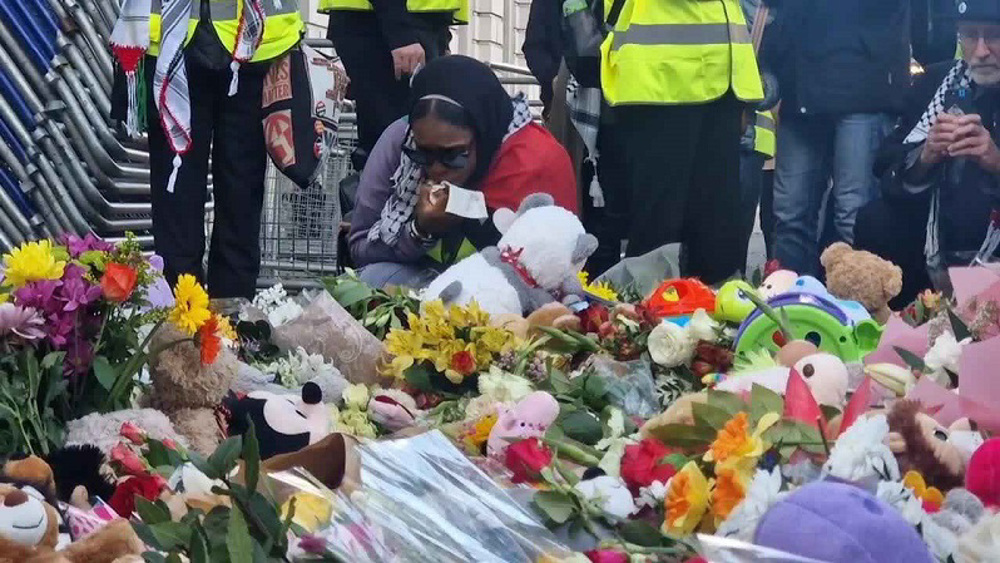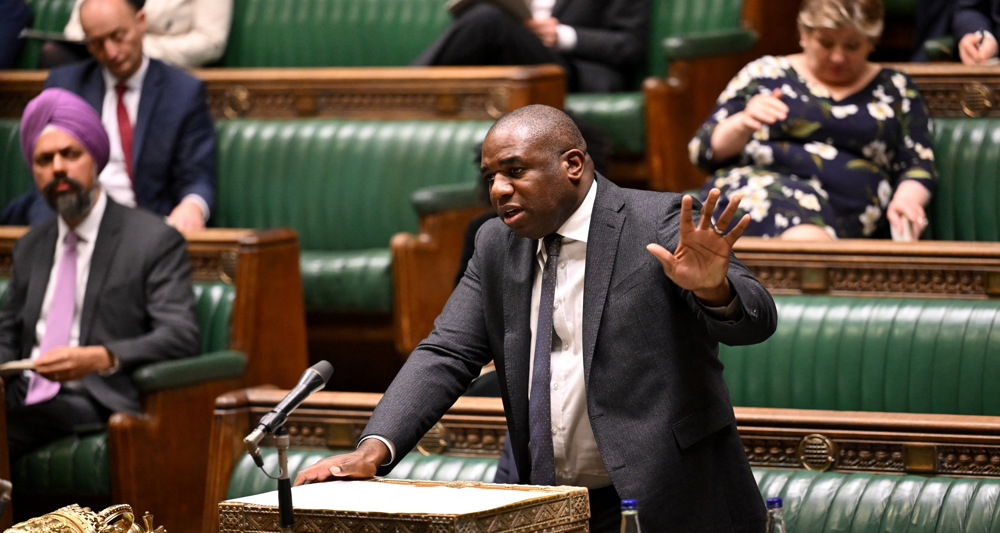Corbyn 'sad' at lost lives in Venezuela violence
British Labour Party leader Jeremy Corbyn has censured the “violence done by all sides” in Venezuela, expressing sorrow over the death of dozens of people in the wake of political and economic unrest in the Latin American country.
“I’m very sad at the lives that have been lost in Venezuela,” Corbyn said in Crawley, West Sussex, where he was attending a meeting of his party members on Monday.
“The people who have died – either those on the streets or security forces that have been attacked by people on the street – all of those lives are terrible for the loss of them,” he added.
“There has to be a dialogue and a process that respects the independence of the judiciary and respects the human rights of all,” the Labor leader noted.
"What I condemn is the violence that's been done by any side, by all sides, in all this,” Corbyn said, stopping short of pointing the finger of blame at Venezuelan President Nicolas Maduro or the opposition for the months-long chaos in the South American country.
"Violence is not going to solve the issue. The issues in Venezuela are partly structural because not enough has been done to diversify the economy away from oil - that has to be a priority for the future," the liberal politician said, adding that, "effective and serious attempts at reducing poverty in Venezuela" should be recognized.
British Prime Minister Theresa May's spokesman also on Monday called for urgent action to be taken in Venezuela to stop the situation getting worse.

The remarks were made as Venezuela has been the scene of anti-government protests over the past months, with clashes between police and protesters that have claimed more than 120 lives on both sides.
The impoverished but oil-rich nation plunged into chaos in April after the country’s Supreme Court decided to annul the powers of the opposition-controlled parliament. The move was regarded as a violation of the country’s constitution. The decision was later revoked, but the protests have only continued.
On July 30, the Venezuelan government held a controversial vote to elect the 545 members of a planned Constituent Assembly, which will have the power to dissolve the current opposition-led legislature and carry out reforms in the constitution.
Critics and the opponents of Maduro had already boycotted the vote, arguing that the new legislative body will give the socialist leader a stranglehold on power.
The National Electoral Council, considered by the opposition as Maduro’s mouthpiece, declared that more than eight million legitimate voters had cast their ballots, putting the turnout of about 41 percent. The opposition rejected the election results as sham and called for further anti-government protests against the new assembly.

Following the new assembly vote, the European Union censured Venezuela for the “excessive and disproportionate use of force by security forces,” and called on both sides to refrain from violence.
The United States also imposed sanctions against 13 current and former Venezuelan officials after doing the same to the country’s vice president in February. The US Treasury Department later froze Maduro’s US assets and called him a “dictator” for pushing ahead with the election.
The 54-year-old socialist leader has on several occasions touted the planned rewriting of the constitution as necessary for resolving the widening political crisis in the impoverished but oil-rich country, saying that the reforms would help the nation through the current economic crisis.
Maduro blames the crisis in the country on the United States, saying Washington has incited the opposition.
Yemeni missile strikes chaos, mayhem into central Tel Aviv; triggers stampede that injures 20
VIDEO | 444 days of ethnic cleansing
VIDEO | Bethlehem's Christmas dimmed by war, restrictions
Israel admits assassinating Hamas leader, vows to inflict same fate on Yemeni fighters, people
VIDEO | Yemeni forces repel US-British attack, down F-18 Jet
Iran’s capabilities vast; enemy’s ‘maximum pressure’ policies all failed miserably: Senior official
Iran’s economy grew 2.7% y/y in Sep quarter: CBI
VIDEO | Freelancers in Gaza strive to stay online amid genocide










 This makes it easy to access the Press TV website
This makes it easy to access the Press TV website